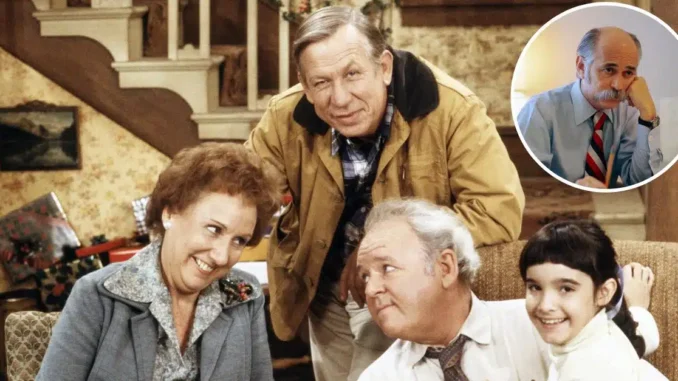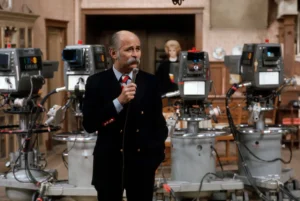
Norman Lear’s All In The Family addressed social issues that would normally be taboo on television, and CBS, able to predict the kind of feedback they’d get from the show’s debut episodes, hired extra telephone operators to deal with shocking viewers.
Per show writer Bernie West, they had an impressive level of creative freedom when it came to the topics they were dealing with. “When you hear about other shows not being able to say this or that, it’s nice to be with a show where we can be as free as we are,” he said.
The show kept it candid
Bernie added that he enjoyed the “topics, the treatments, and the latitude we have to make things as funny and as true to life as possible.” Per Donna McCrohan’s Archie & Edith, Mike & Gloria: The Tumultuous History of All in the Family, the scripts were the result of a joint effort, unlike most shows at the time.

Story editor Michael Ross recalls that writing for All In The Family was much more than a job, but a passion project for all involved. “Most situation comedies in Hollywood are 10-to-5 jobs for the writers. But on All in the Family, there is a kind of community effort. Everybody stays with it until the final moment,” he said.
They didn’t need much imagination
Based on the sitcom’s reputation for depicting real life, it did not “take a lot of imagination” to come up with scripts. “It just took looking around,” Lear once explained. The late producer was told to have required all writers to keep up with the news for inspiration and brought in subject-matter experts to provide more insight ahead of upcoming episodes.
Ronald Brownstein confirmed Lear’s mode of operation in Rock Me On The Water, where he revealed they had the New York Times, Wall Street Journal, and the Los Angeles Times in the office “so anyone who missed something could read it,” he stated.
